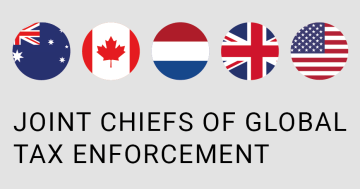Jasmine Wallis* speaks with Rhonda Andrews to uncover the financial red flags to watch out for in a new relationship.
 Financial conversations don’t tend to come up when you’re in a new relationship.
Financial conversations don’t tend to come up when you’re in a new relationship.
That’s because most of the time, you’re too busy splashing money on fancy dinners, bars, hotel rooms and romantic trips away.
But soon, you might begin to notice patterns: an innocent holiday you booked together where the other person promises they’ll reimburse you and never does, or the old ‘I left my wallet at home’ line.
While seemingly insignificant, these money red flags can compound way faster than the interest on your superannuation.
Considering that 16 per cent of Australian women have or will have experienced financial abuse in their lifetime, it’s an important area to keep an eye on, even if the flags are seemingly harmless.
So how do you know what to look out for when it comes to mixing money with new love?
Rhonda Andrews has been a psychologist for nearly three decades, and is the founder of the Barrington Centre counselling service.
She explains that financial red flags can start with clichés like not paying for dinner, but can quickly evolve.
“I think it’s more about the rush of getting into joint financial situations,” Andrews says.
“I see a lot of things like people suggesting that they set up joint accounts when they’ve only just really met a person.
“It sounds quite innocuous — ‘Let’s have a joint account to save for our holiday,’ — but it very quickly moves into looking at joint accounts for a number of other things, and building up to more insidious levels of control.”
What are some red flags to watch out for?
Some financial red flags can include borrowing money from a new partner, hiding important financial information such as a lot of debt or a clear issue with excessive credit card usage.
“If you see a disconnect between the words of what your partner is saying, and their actions, then that’s a red flag,” says Andrews.
Also, if your new partner is living as though they’re in a different tax bracket while simultaneously hiding or borrowing money, the alarm bells should start to ring.
“It’s usually within those first three months that the first signs [of financial manipulation] begin,” says Andrews.
“It can start out with a great deal of generosity, so there’s a degree of you feeling of being attended to and looked after.
“And then they might table ideas around a joint account for a trip, or a present for a wedding.
“The ramping up happens quite quickly.”
The creep of financial control
Of course, not every partner who displays these red flags is going to be a financial abuser.
Some people may just be bad with money and not know how to end the cycle of credit card debt and poor money decisions.
Andrews explains, however, that actions that go further than bad financial choices usually stem from a need for control.
“Often, these people are really being driven by having control, and financial control is just one way,” she says.
Andrews also notes that societal pressure such as culture and religion, as well as family and peer expectations can influence an individual to control another person’s finances.
“The people who are really driven by that sense of control are often motivated by their own low self-esteem, or wanting to prove themselves to others, particularly their parents or peers,” says Andrews.
“It’s not just control; it’s about changing their perception of themselves, and their self-esteem.”
What to do if you see red flags
No matter what causes the red flags, protecting yourself in a new relationship is incredibly important.
While these financial indiscretions may seem small to begin with, they can amount to some serious relationship issues down the line.
So if you see these red flags beginning to crop up, what should you do about them?
Andrews explains that, whatever your gender and whatever your relationship looks like, it’s important to assess your own financial values, and see if they match the other person’s.
Basically, communicate with your new fling, even if it feels awkward.
“You have to agree on the best way to spend money and how it forms part of your life,” she says.
Healthy boundaries around money from the start of a relationship can set the foundation for a healthy relationship in the future.
Apps such as Money By Afterpay can help keep your money separate and make it easy to track what’s going in and out.
Andrews also recommends connecting with your support network such as friends and family to ensure you’re discussing any red flags in your relationship and making the right decision for you — whether that’s ending the relationship or having some tough conversations with your new partner around money.
So, enjoy your new romance, and all of the green flags that hopefully come with it, but by keeping these financial red flags in the back of your mind, you can protect yourself, your assets, and most importantly, your future.
For urgent help regarding domestic and financial abuse, call Lifeline on 13 11 14.
*Jasmine Wallis is a Journalist, podcast host, word-crafting copywriter, editor, producer and all-round media-slashie.
This article first appeared at refinery29.com.











